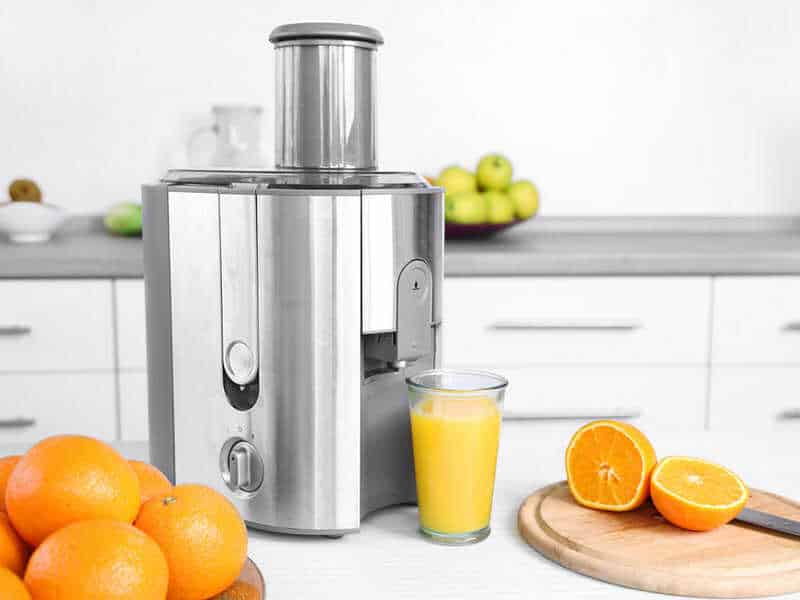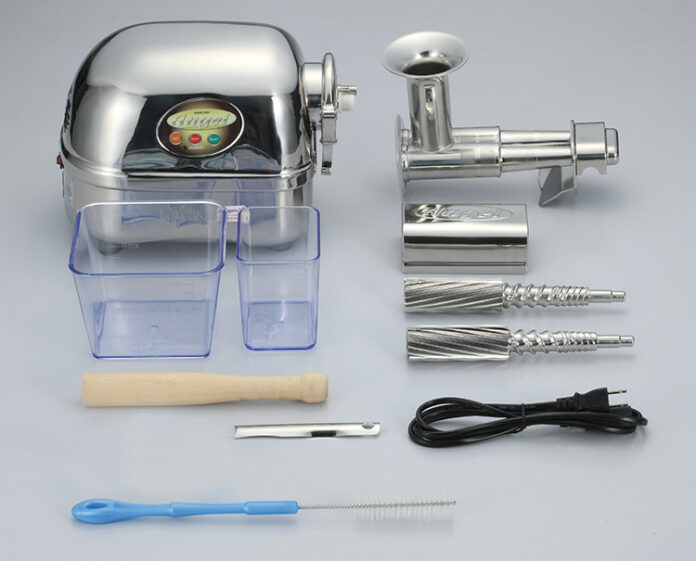Whether you’re an owner of a vibrant juice bar or a gym offering fresh juice post-workout, the choice of a commercial juicer is an important one. The right juicer can boost your business’s efficiency, promote a healthier menu, and ultimately improve your bottom line. However, with an abundance of commercial-juicers on the market, it can take time to choose the right one. This guide will walk you through the process, helping you make an informed decision.
Understanding Your Business Needs
Picture your juice business as an exquisite dance performance, each element carefully choreographed to complement the other, creating a harmonious show. The choice of your commercial-juicer should seamlessly fit into this choreography, accentuating your business’s unique rhythm. Understanding your business needs, therefore, becomes an essential first step in this dance of choice. Start by identifying your target audience.
Are your patron’s fitness enthusiasts seeking fresh juice after a workout? Or are they health-conscious urbanites looking for a daily dose of freshly squeezed nutrients? The former might appreciate a speedy service, making a centrifugal juicer a fitting choice, while the latter may value quality over speed, nudging you towards a cold press juicer.
Evaluate your business volume. Are you running a bustling juice bar, serving hundreds of juices daily? Or is your juice service a cozy side attraction in a café or gym? High-volume businesses will benefit from a juicer with a large capacity and quick operation, while lower-volume establishments might afford to prioritise juice quality over speed. Consider your available space and staff resources. A larger, high-capacity juicer might seem appealing, but it’s useless if it swallows up your counter space or requires complex operation.
Choosing Between Centrifugal and Cold Press Juicers
Imagine standing at a crossroads; one path leads towards centrifugal juicers, known for their speedy performance and budget-friendly price tag. The other path directs you towards cold press or masticating juicers, famous for their exceptional juice extraction efficiency and nutrient-rich output. Which path do you choose? If speed and affordability are high on your business’s priority list, then a centrifugal juicer might be the ticket. These juicers are popular for their rapid juicing times and lower price points. However, they might extract less juice from your fruits and vegetables, potentially impacting your yield.
Conversely, if quality and efficiency are your guiding stars, then cold press juicers may be your perfect partner. These juicers take a slow and steady approach to juice extraction, resulting in a higher juice yield and nutrient-packed beverage. Though they come with a heftier price tag, they may prove cost-effective in the long run by reducing wastage. Your choice between a centrifugal and cold press juicer should hinge on your business’s unique needs and objectives. So, ponder wisely and choose the best path with your juice-production goals.
Considering the Efficiency and Ease of Use
Picture this: your commercial-juicer is the leading performer in the dance of your daily operations. It needs to have the finesse of a ballerina and the strength of a salsa dancer. In simpler terms, it needs to be efficient and easy to use. When it comes to efficiency, time is of the essence. A commercial-juicer that can extract maximum juice from your fruits and vegetables in the shortest time possible is a winning contender. Much like a skilled dancer executing a sequence of steps with precision and speed, your juicer needs to handle the load easily and quickly.
Consider the yield of the juicer, how much juice it extracts per piece of fruit, and how quickly it can produce a serving of juice. But remember, efficiency isn’t just about speed; it’s about achieving the best results with the least waste. Ease of use is another significant aspect. Operating your juicer should be as smooth as a well-executed waltz. Look for juicers with simple, user-friendly interfaces and clear instructions. The last thing you want in the middle of a busy day is to fumble around with complicated settings or confusing controls. The loading mechanism is worth considering.
 Evaluating the Longevity of the Commercial Juicer Machine
Evaluating the Longevity of the Commercial Juicer Machine
Picture your commercial juicer machine as a passionate dancer, one that you want to remain energetic and vibrant for many a performance. The longevity of your chosen machine, becomes a critical factor. Just like an enduring dance partnership, you need a juicer to keep pace with your business for the long haul. The juicer’s durability will significantly depend on the materials used in its construction. Machines crafted from stainless steel or other sturdy metals will generally outlast those made from cheaper, less durable materials. Think of it as choosing a dancer with a solid core, able to withstand a rigorous routine.
Pay attention to the warranty too. Manufacturers confident in their product’s durability will typically offer a longer warranty. It’s the equivalent of a dancer sure of their endurance, not afraid to promise many more stunning performances. So, when picking your commercial-juicer, don’t just go for the first machine that catches your eye. Evaluate its build quality, the motor’s robustness, and the warranty’s length. Like a well-choreographed dance, your juicer needs to be a reliable partner, ready to keep up with the rhythm of your business today and well into the future.
Checking the Noise Levels of the Juicer
Think of your commercial-juicer as a musician in the orchestra of your business. It needs to play its part without overpowering the rest of the ensemble. In other words, while you want your juicer to be efficient and effective, it must also be reasonably quiet. No one enjoys a shrill soloist, especially in the calming ambience of a juice bar or café. The constant loud noise of a juicer can be disruptive, detracting from the overall customer experience. Noise level largely depends on the type of juicer. Remember our crossroads from earlier? Well, here’s another fork in the road.
Centrifugal juicers, with their high-speed spinning, tend to be louder. On the other hand, masticating or cold press juicers typically produce less noise due to their slower operating speed. So, tune your ears to the melody of potential juicers. Will your customers be able to chat comfortably over the hum of your juicer, or will they have to shout to be heard? Consider not only the machine’s decibel level but also the noise’s duration. A quick but noisy juicer might be more tolerable than a quiet but slow one.
Consider the Size and Footprint of the Juicer
Picture this: you’ve found your perfect commercial-juicer match. It’s efficient, user-friendly, durable, and doesn’t make a racket. But alas! When it comes to the dance floor, it’s more of a jive than a waltz, taking up much more space than you’ve got—size matters, particularly when working with a compact or confined workspace. So before you purchase, you need to put your measuring tape to work. Like a well-planned stage, you need to measure the area where your juicer will perform its act.
Keep in mind the juicer’s dimensions and consider any additional space necessary for its operational movements and post-show cleaning. After all, you don’t want your juicer pulling a surprise star jump when there’s only room for a gentle sway. And remember, it’s not just about whether your juicer fits; it’s about how well it fits.
A juicer that takes over your counter will leave little room for other important performers in your production. The last thing you want is for your blender or coffee machine to feel shoved aside. So, before you pick your commercial-juicer, take a moment to consider the stage. Just like a well-rehearsed performance, everything needs to fit in perfect harmony. Because in the end, it’s not just about finding the right juicer; it’s about finding the right juicer for your space.
Ease of Cleaning and Maintenance
Imagine this: your commercial-juicer has just finished a stellar performance, flawlessly juicing batch after batch of fresh fruits and vegetables. The audience, your satisfied customers, applauds. But now, the curtains close, and the real work begins. Like a meticulous stage manager ensuring every prop is in place, you’re faced with cleaning your star performer. A juicer that’s easy to clean and maintain can save you time and effort and help prolong the machine’s lifespan.
It’s like having a dance partner who only lets you do some heavy lifting. Consider how easy it is to dismantle the juicer for a thorough clean. Look out for those with fewer parts and straightforward assembly; it’s akin to having a dance routine with less complicated steps, making the performance smoother and less prone to mishaps. Another consideration is the material from which the juicer is made. Stainless steel components, for instance, are generally more comfortable to clean than plastic parts.
Ensure that the pulp container is easily accessible and simple to empty. After all, a dance is more fluid when no stumbling blocks are in the way. Remember, residue build-up can compromise your juicer’s performance and affect the taste and quality of your juice. Also, take into account the juicer’s maintenance needs. Is it a low-maintenance machine that needs occasional servicing, or does it demand frequent tune-ups? Just as a dancer requires regular practice to keep in peak condition, your juicer may also need routine upkeep.
FAQs
Q: What is the main difference between a centrifugal and a cold press juicer?
A: Simply put, a centrifugal juicer uses a rapidly spinning blade to break down the fruits or vegetables, whereas a cold press juicer uses a slow masticating process, which helps to extract more nutrients and juice.
Q: How important is the ease of cleaning a juicer?
A: The ease of cleaning is crucial for maintaining a hygienic juice-making process and prolonging the juicer’s lifespan. Regular cleaning prevents the build-up of pulp and residue, which can eventually lead to breakdowns.
Q: Should I base my juicer choice purely on my business size?
A: While the size of your business is an important consideration, it should not be the sole determinant. The type of juice you offer, the production volume, the space available, and your budget are all critical to consider.
Q: Can I compromise on the size and footprint of the commercial juicer for better performance?
A: Crowding your counter space just for juicer performance is not advisable. Overcrowded counters can disrupt the workflow and even create potential safety hazards. It’s about finding a balance between performance and space efficiency.
Conclusion
Choosing the right commercial-juicer is an art form akin to a dance that requires grace and precision. Understanding your business needs, selecting the appropriate juicing mechanism, and evaluating efficiency, noise level, size and ease of cleaning are all pivotal steps in this dance. By considering each of these factors carefully, you can select a juicer that complements your business and enhances its rhythm. As you step onto the dance floor of the commercial-juicer market, may you find a partner that can effortlessly match your business’s unique pace and style? Happy juicing!
| Other Good Articles to Read |
| Cme Blog Spot |
| Garcias Blogs |
| Yyc Blogs |
| Guiade Blogs |
| Blogs-Hunt |
| Impact-Blog |
| Smarty Blogs |
| Ed Blog |
| Mo Blogs |
| Blogs Em |
| Blog St |
| Related Business Listings |
| Contact Directory |
| Local Business Profiles |


